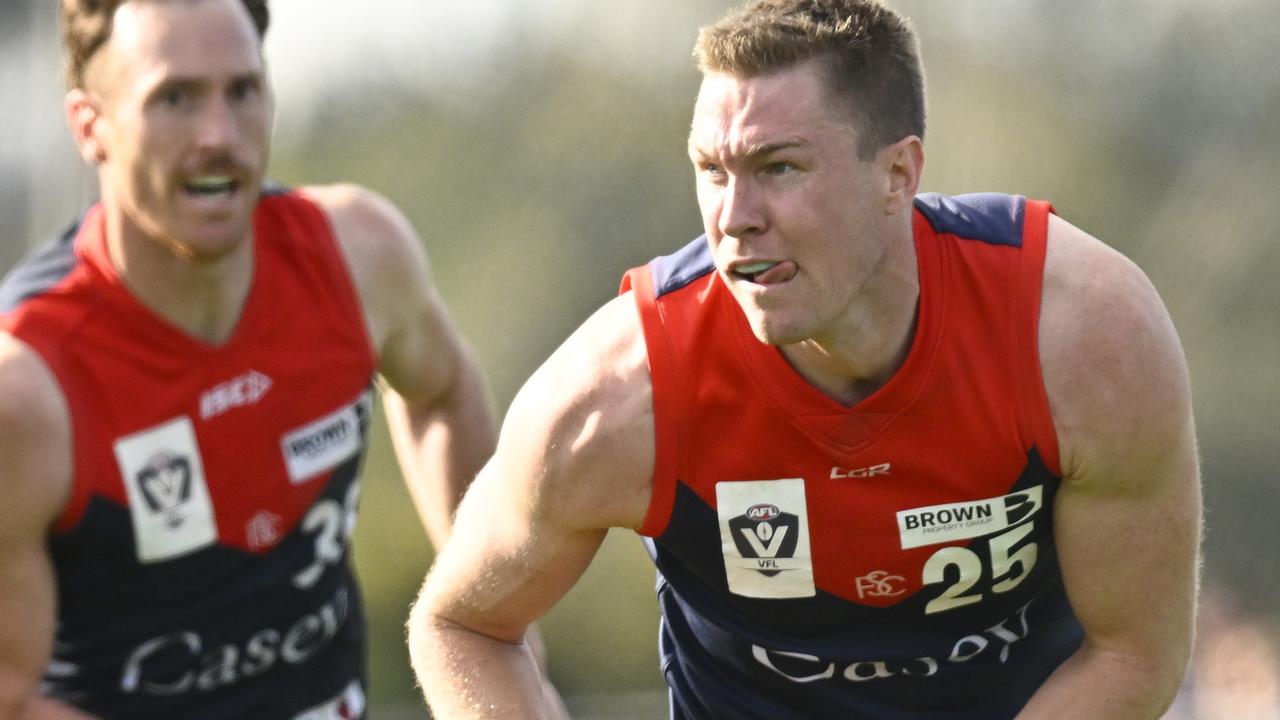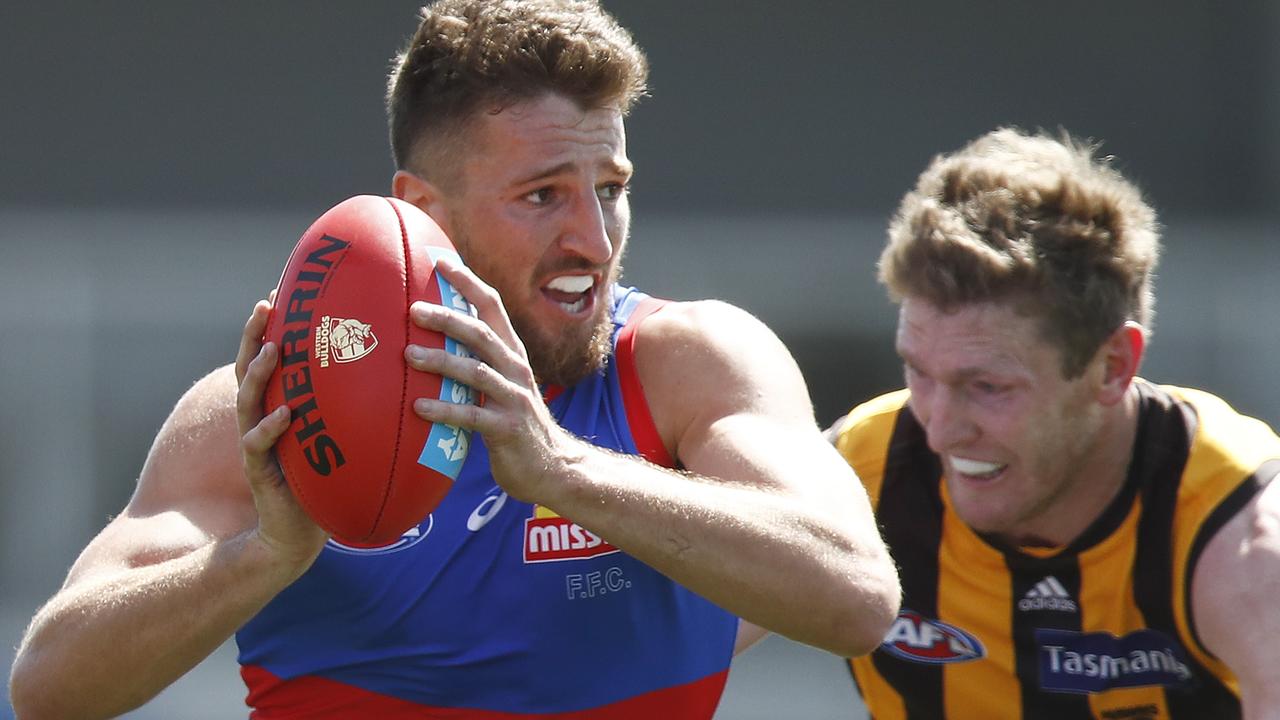Brendan McCartney's old-school approach as Western Bulldogs destined for success
BRENDAN McCartney's old-school approach as Western Bulldogs destined for success in the near future, writes David King.
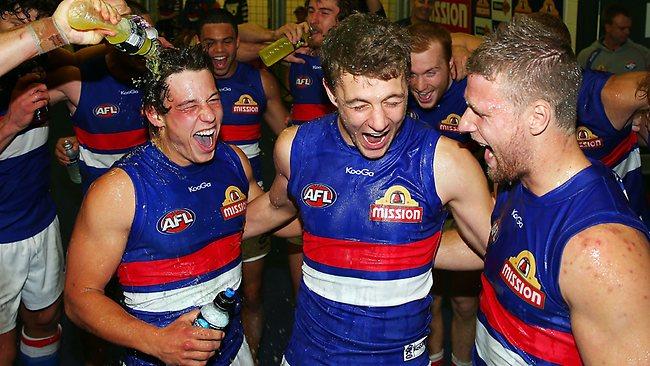
David King
Don't miss out on the headlines from David King. Followed categories will be added to My News.
WHEN Brendan McCartney walked in the door he meant business.
There would be no spin, no lies, no deviation and certainly no shortcuts or trickery at the Whitten Oval.
Brendan the Rebuilder (Bob the Builder's distant cousin) promised just one thing - a non-negotiable competitive effort.
The doubters came thick and fast in the winless second half of last season, which came with an average losing margin of more than 10 goals.
"Does he know what he's doing?"
"Is McCartney a great second banana and not a senior coach?"
"Why aren't the Bulldogs under the same scrutiny as the Demons?"
These were just some of the questions raised by the media who, like Dogs supporters, wanted immediate returns.
McCartney would offer consistent and repetitious statements regarding development, teaching, patience and - most of all - the vision of where the club was heading, even if it meant short-term losses for long-term prosperity.
As boring as McCartney's messages were, they were unwavering.
McCartney is like all great coaches: he's different, quirky yet forthright and always believable.
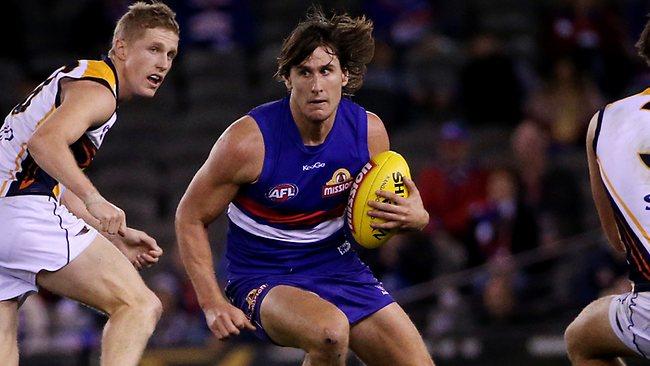
Often he asks questions while nodding - almost as if he knows the response - inferring agreement is a given. And I'd assume it would take a brave player to differ.
It's an old-school approach to a modern game based on decision-making and assessing that when the ball is in dispute, his team is about to win or lose possession.
It sounds simple, but these changes take varying times of adjustment for different players, regardless of talent.
Those who don't conform by choice or by action are known as the delisted at Whitten Oval. It's "team-first" football.
A rebuild requires difficult decisions and trading Brian Lake, while unpopular, paved the way for Koby Stevens and Nathan Hrovat. The Dogs have built from the midfield first with the bulk of their 2012 and 2013 drafts.
Their direction has been firmly fixed, yet not blinded. Stuck in the VFL, Jarrad Grant learned that a "nice" 7-10 possessions and flashing the "I'm a first-round pick" badge wasn't enough at the new-look Dogs.
It has been a win-win for club and player. Grant now is a viable long-term option with an impressive month of football. They never closed the door.
The season of Tom Liberatore cannot be undersold. He is the AFL's No.1 clearance player, No.3 contested ball winner and must be All Australian.
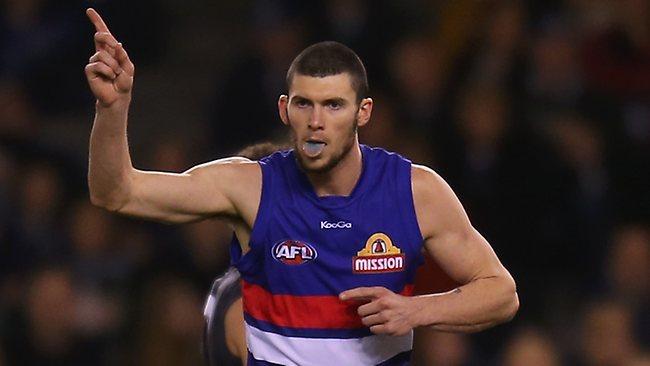
Mitch Wallis has found new focus as a tagger whose recent scalps include Sydney's Josh Kennedy, Carlton captain Marc Murphy and Adelaide's energiser bunny Patrick Dangerfield.
The young talls are a work in progress, but Jordan Roughead gives the impression you can form a back six around him.
But just imagine if he and Shaun Higgins can string 50 games together. If Ayce Cordy or Tom Campbell can establish themselves as viable full-forward options, combining the second ruck role, then the spine of the team comes together quickly.
Ryan Griffen's season could culminate in a Brownlow Medal. He is one of only five players averaging 30-plus touches a game and it comes with an ideal balance of 13 contested and 17 uncontested. He also leads the competition for inside 50 entries.
But what I most admire about Griffen is his resilience as a leader, carrying the load when the scoreboard looks poor or when he's surrounded by players with "L Plates" firmly attached.
McCartney has taught from the contest first - the inner circle of the stoppages or the fall of the ball from marking contests, where possession is won. The mechanics of what's required structurally in terms of starting positions in and around that zone has taken time, but we're now seeing the benefits of broadening the teaching and the learning that's followed.
It has now spread from that inner contest to the wider ball movement and uncontested battle on the outside.
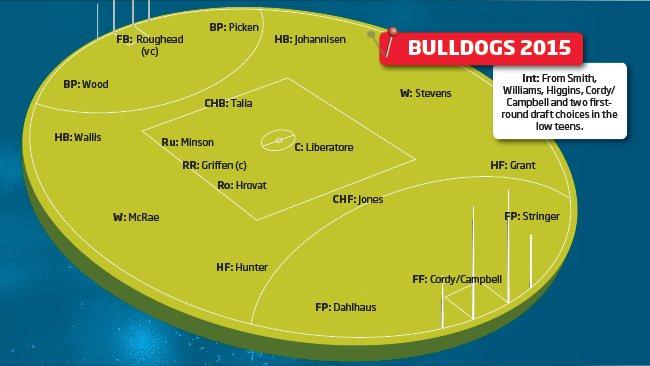
It wasn't that long ago that the Bulldogs couldn't maintain possession.
But over the past five weeks they rank No.1 for total possessions, averaging more than 400 per outing - 50 more than their opponents.
McCartney's troops have always been an elite contested ball team, but they are morphing into the complete package.
When Western Bulldogs supporters look to 2015 and beyond they have reason to expect exciting times.
They seem well stocked for midfielders that are spilling to the flanks, a spine with presence although not without question marks and a look that says they won't be reliant on the ageing stars who will derive much joy from the apprentices they advised.
We have come up with a possible Bulldogs side come 2015. Even though they'll still be playing, we have deliberately omitted players over the age of 28 to highlight the depth of talent and quality.

This club's next final isn't far away, given their list composition and honest brand of football.
McCartney knows what's required, has delivered it before and will remain consistent in his methodology.
It's a brand that offers accountability, competitiveness and a team-first approach without the risk-taking and trickery of a previous Bulldog generation.
Finals in 2014 isn't out of the question, but the following year is a more realistic assumption. But one thing is for certain; once they make the top eight there will be no retreating for a sustained period.
Gordon, McCartney and McCartney sound like a rock band, but may prove to be the Costa, Thompson and Wells that the Geelong Football Club built so strongly from.
Their Brian Cook hasn't yet surfaced, but we are seeing their Selwood and Bartel emerge.

